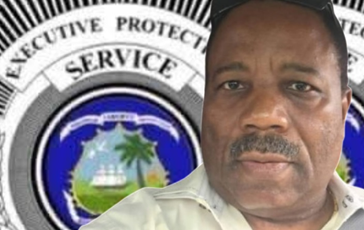The Press Union of Liberia (PUL) has vehemently condemned a threat issued by the Director of the Executive Protection Service (EPS), Sam Gaye, to revoke the security details of public officials who engage in what he terms “political insurrection” against the Liberian government. This warning, issued against the backdrop of rising political tension, has sparked a heated debate about the balance between national security and fundamental freedoms, particularly the right to free speech and political expression. While Director Gaye refrained from naming specific individuals, his statement came shortly after former Vice President Jewel Howard-Taylor and other political figures publicly cautioned that President Joseph Nyuma Boakai’s administration risked facing “chaos” if it continued to disregard the rule of law. This cautionary statement was prompted by President Boakai’s apparent defiance of a Supreme Court ruling that reaffirmed Speaker J. Fonati Koffa’s legitimacy.
The crux of the contention revolves around a Supreme Court decision regarding an amended Bill of Information, which affirmed Speaker Koffa’s position. President Boakai’s subsequent response, stating his government would operate based on a “quorum” in the House, seemingly disregarded the Court’s ruling and heightened political tensions. Against this tense backdrop, Director Gaye’s threat to withdraw security protection from officials deemed to be inciting insurrection has been interpreted by many, including the PUL, as an attempt to stifle dissent and suppress free speech. The PUL argues that such threats create a chilling effect on political discourse and undermine democratic principles.
PUL President Julius Kullie Kanubah, speaking at the 32nd World Press Freedom Day celebration, characterized the EPS Director’s statement as a blatant violation of constitutional rights, specifically the freedoms of speech and political expression. He emphasized that the government has a responsibility to foster an environment where all citizens, irrespective of their political affiliations, can express their views without fear of reprisal. Kanubah argued that the threat to withdraw security protection serves as a form of intimidation designed to silence critical voices and discourage political participation. He called on the government to respect the views of all political actors and uphold the fundamental right to free expression.
Beyond the specific threat from the EPS Director, Kanubah also addressed the broader issue of press freedom in Liberia. He denounced the escalating trend of attacks on journalists and vowed that the PUL would pursue legal action against any individual or group found culpable of assaulting or abusing media professionals. While acknowledging that press freedom comes with responsibilities, Kanubah underscored the importance of protecting journalists and ensuring they can carry out their duties without fear of intimidation or violence. He reaffirmed the PUL’s commitment to defending press freedom and holding those who infringe upon it accountable.
The unfolding situation in Liberia highlights the delicate balance between safeguarding national security and protecting fundamental rights. Director Gaye’s threat to withdraw security protection has been met with widespread criticism, with many arguing that it sets a dangerous precedent and could embolden further attempts to suppress dissent. The PUL’s strong stance in defense of free speech and press freedom underlines the importance of these rights in a functioning democracy. The ongoing political tension underscores the need for a robust and independent judiciary, as well as respect for the rule of law, to ensure stability and prevent further escalation of the situation.
As Liberia navigates these post-election political tensions, the debate surrounding the EPS Director’s threat serves as a microcosm of the broader challenges facing the country. The PUL’s call for respect for constitutional rights, alongside its commitment to protecting journalists, reflects a broader desire for a more democratic and inclusive society. The international community will be watching closely to see how the Liberian government responds to these challenges and whether it prioritizes the protection of fundamental freedoms alongside its efforts to maintain national security. The resolution of this situation will have significant implications for the future of democracy and freedom of expression in Liberia.


